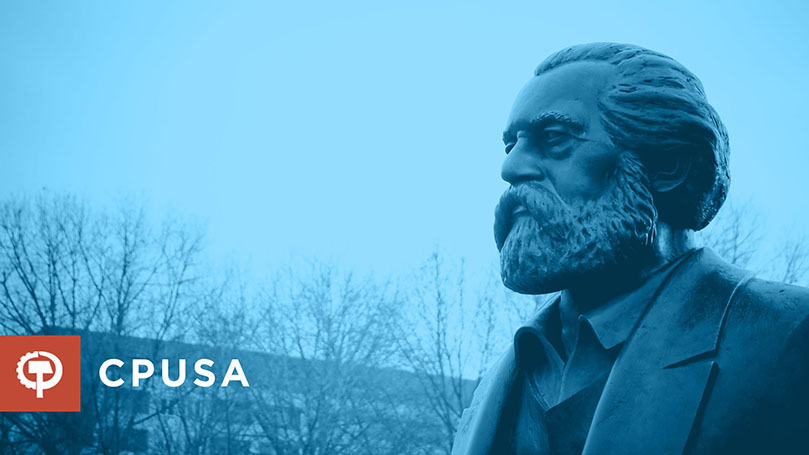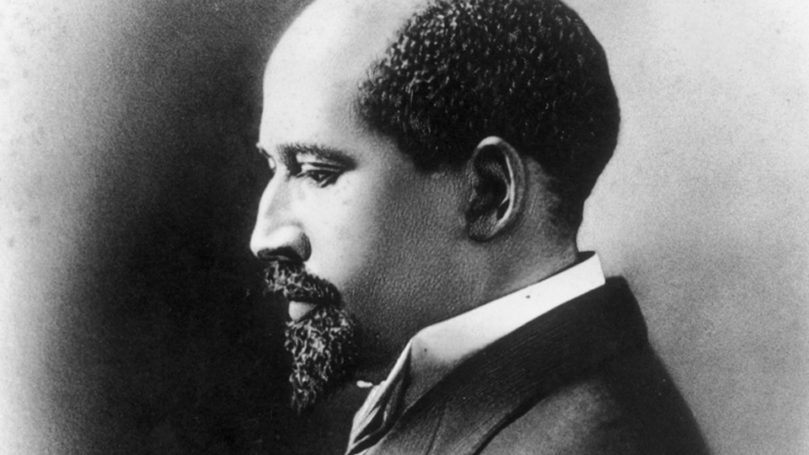
Donald Trump recent attacks on the “intelligence” of prominent African Americans, political leaders, famous athletes, well known media commentators, are in the tradition of racist demagoguery that goes back to slavery times. It is fitting that we dedicate this Marxist IQ to the man whom many through the world see as the most significant American intellectual of the 20th century, the African American scholar/activist W.E.B Du Bois
1. In his classic study, Black Reconstruction, W.E. B. Du Bois saw:
a. the slaveholder’s launching of the war to save slavery as essential to destroying slavery;
b. The resistance of the slaves during the war, undermining the Confederate economy, as the most important factor in the Confederate/slaveholder defeat;
c. The struggle to build a “united front” of former slaves and landless poor whites as the revolutionary possibility of Reconstruction;
d. All of the above.
2. In his early classic study, Souls of Black Folk, Du Bois contended that:
a. the major question of the 20th century will be the question of the middle class;
b. the major question of the 20th century will be the question of economic growth;
c. the major question of the 20th century will be the question of the color line;
d. the major question of the 20th century will be the question of political democracy.

3. When Du Bois in the early 20th century developed the concept of the “talented tenth” of the African American people, he meant:
a. encouraging the African-American masses to emulate business owners;
b. integrating the “talented tenth” of the African American people into the middle and upper echelons of U.S. society;
c. seeing the “talented tenth,” those with education and skills, as a vanguard mobilizing the African American people to fight for full political and social equality;
d. training the “talented tenth,” those with education and skills, to act as administrators the way the colonialists sought to train such groups from the indigenous population in colonies.
4. Along with being a founder of the NAACP and the longtime editor of its journal The Crisis W.E.B. Du Bois:
a. ran for president as a socialist against Woodrow Wilson;
b. supported the Back to Africa philosophy of Marcus Garvey;
c. led a delegation to fight for the liberation of Africa from colonial domination at the Versailles Conference;(correct)
d. urged African Americans to remain loyal to the Republican party.
5. Although he faced great persecution in the cold war era,(removal from the leadership of the NAACP, the organization of which he was a major founder, arrest for his opposition to the Korean War, the loss of his passport and the removal of his books from U.S. libraries here and abroad) Du Bois remained a revolutionary optimist, as seen by:
a. his settling in Ghana to become an advisor to Kwame Nkrumah, the socialist oriented independence leader, once the courts overruled the State Department to give him back his passport;
b. his joining, shortly before his death in Ghana at the age of 93, the CPUSA as a gesture both of solidarity with the working people of the United States of militant resistance to the forces he had fought all of his life;
c. his observation that the defeat of both fascism and colonialism in WWII had created a world revolutionary situation among the exploited and oppressed peoples of the world making an end to capitalism, racism and imperialism possible in the foreseeable future;
d. all of the above.


 Join Now
Join Now